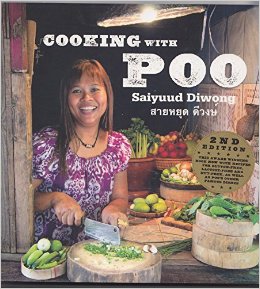
09
Jan
Tongue Thai-ed: 5 ways to bungle Thai students’ nicknames
You won’t believe me but this is a true story.
It was my first day teaching English in Thailand; I had just finished my TEFL certification course and I was petrified. But I knew from my TEFL training that my 8-year-olds would eat me alive if I showed fear. It was go-time whether I liked it or not.
I wanted to use an activity I did while on my TEFL course so I called up two students from the front of the class to do a demonstration.
Me: “What’s your name?”
Kid on my left: “Pee-sa.”
Me (dumbfounded): “I’m sorry, what’s your name?
Kid on my left: “Teacher, my name Pee-saa. You know. . .chomp chomp. I love
pee-saa!”
Through his effective miming and his pudgy little smile, it hit me:
Oh my, this kid’s name is Pizza.
Me: “Wow. Your name is Pizza. Nice to meet you, Pizza.”
Then I turned to my right.
Me: “And what’s your name?
The boy replied with something that sounded like, “Hud” or “Hot”, I wasn’t sure. So again, I relied on my TEFL training and asked what I was told to ask in these situations.
Me: “How do you spell that?”
Kid on my right: “My name Hut. H-U-T, Hut”.
It was my first experience teaching English in Thailand. How on Earth had I managed to call up two kids named Pizza and Hut? I looked around to see if my new co-workers had put the kids up to it. Nope. That moment proved to be just the beginning of navigating my way through the virtual mind field of learning Thai students’ nicknames.
Whether a student’s nickname seems strange in our culture, or we simply cannot begin to pronounce it, mastering Thai nicknames can prove to be a surprisingly difficult challenge. Let’s look at a few names that illustrate just how difficult this can be.
1) Santa and Man U
Yep, those are totally real names. I know because I taught these kids. Names related to Ol’ Saint Nic and Manchester United Football Club might be easy to say, but difficult to verbalize for the first time with a straight face. And as far as that goes, meet God and Benz, because those names are real too.
More examples: Google, Pepsi, Sprite and London.
Lesson: Expect the unexpected and try not to snigger.
2) Poo and Porn
Who names their kids after feces and adult media? Thais don’t. It might sound like they do but the names don’t mean anything like what you think they mean. They’re simply troublesome translations and they’re everywhere: Poo means ‘crab’ and Porn means ‘blessing’.
More examples: Fuk. Pronounced more like ‘fak’, Fuk’s name refers to a squash-like called wintermelon.
Lesson: Keep your mind out of the gutter.
3) Ple and Kung
These are two great examples of confusing transliterations—this time, a bit more innocent. Kung translates into ‘prawn’ and is said much closer to “Goong”. Ple is a name any new teacher in Thailand dreads. On its own, it seems like nonsense but if you know the name is derived from the English word, ‘apple’, as well as Thai pronunciation rules (final ‘l’ sounds go to ‘n’ sounds), you’ll correctly pronounce it “Pbeun”. Crazy, eh?
More examples: Bum for “Boom”, Oil for “Oi” and Ball for “Bawn”.
Lesson: Don’t judge a name by its spelling.
4) Yaa and Mai
Moving away from English-language based problems, we find problems with Thai tones–something you cannot avoid if you’re going to be teaching English in Thailand. Yaa can be said with a short or long vowel and in a variety of different tones. While the nickname itself is usually a shortening of a longer name, depending on how you say it, you might call the student, Grass, Grandmother, Divorce, Medicine or a say a command to stop at once. Mai can come out as anything from Wood or New, to Burn or Silk, plus a few other meanings.
More examples: Wan, Pet, Maa, Yai and so many more.
Lesson: Watch your tone.
5) Ngoo and Deuan
These names also present a problem with pronunciation, but rather than tone this is all about making sounds that we don’t typically make in English. The second sound in Deuan is a vowel sound we don’t use in English–making it difficult for us to say. It sounds like the ‘u’ sound in ‘ruler’ but said while smiling. Ngoo is all about the ‘ng’ sound we make with -ng spellings. The difficult part is that we don’t start words with that sound, so Ngoo (the Thai word for snake) becomes Noo (the Thai word for mouse).
More examples: Neung, Seua, Geaow
Lesson: Start learning basic Thai, or at least the sounds as soon as you can.

It might be tough but learning your students’ names as quickly as possible will do wonders for classroom management.
TEFL teachers need to get used to using students’ names if they are to move forward with classroom management, earning students’ respect and simply setting a good example as a language learner. From nailing the correct pronunciation, to understanding the English translation, students will be impressed by their teacher’s understanding of both their language and their culture.
Now if only the students could say their English teachers’ names correctly.

This article is written by TEFL Campus Course Director, Eric Haeg. The story about Pizza and Hut dates back to his days teaching upper primary science at Assumption College Sriracha, between 2005-2007.







